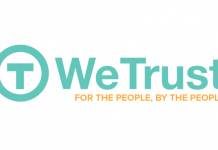As Samsung Group seeks to lead the fintech industry, the South Korean electronics giant is turning its eyes toward blockchain technology. Reports from Korean media outlets suggest that the firm is planning to set up a blockchain system among its financial subsidiaries as early as October, which it would expand it diverse financial services next year.
Although the allegations have been denied by a Samsung Group spokesman, the firm has been active in the bitcoin, blockchain space, investing last month in Blocko, a domestic startup that provides a proprietary blockchain platform called CoinStack for enterprises.
Samsung SDS, the group’s IT services affiliate, said in a media release that it was seeking to “accelerate investments in global startups to boost business competitiveness as well as secure future growth.”
The company said it will “work with Blocko to support commercialization of emerging blockchain technology in various sectors including the Internet-of-Things (IoT).”
The move follows the ADEPT proof-of-concept (PoC) the firm co-developed with IBM. ADEPT, which stands for Autonomous Decentralized Peer-to-Peer Telemetry, uses the blockchain database to build a distributed network of devices, providing a secure, low-cost way for devices to interact.
The APEPT PoC implements the functions of peer-to-peer messaging, distributed file sharing and autonomous device coordination by using three open source protocols: Telehash for messaging, BitTorrent for file sharing, and Ethereum for autonomous device coordination functions such as device registration, authentication, proximity-based and consensus-based rules of engagement, contracts and checklists.
“Beyond the world of banking, there’s another realm in which this database has huge potential,” Michael Halloran, a former banker who now publishes the Fintech Blog and contributes to Samsung’s Insights, wrote in a post. “The IoT is the connected world of devices, vehicles, buildings and other entities embedded with software, sensors and network connectivity.”
Using blockchain technology would allow to address the cybersecurity concerns in the IoT.
“It turns out that the concept of IoT and a lot of the futuristic scenarios we see around the corner involve mobile for notifications and control, as well as block chain — which means it’s not just for bankers anymore,” said Halloran.
The investment in Blocko came along with a deal with Darktrace, a UK-based cyber security company. Samsung SDS said that the investment aimed at increasing the firm competitiveness of its cybersecurity business and services. The group said it will promote sales of the differentiated cyber threat defense solution by Darktrace to Korean companies.
In parallel, Samsung SDS is working towards expanding its mobile security solution business into the European market. The firm recently partnered with the UK banking and financial services company Barclays to back to development of digital banking services together with Samsung Electronics.
South Korean financial institutions jump in the blockchain wagon
South Korean banks and financial institutions have started exploring applications for blockchain technology with KB Kookmin Bank, one of the four biggest commercial banks by assets in the country, being among the most active players in the field.
Earlier this year, KB Kookmin Bank signed a Memorandum of Understanding with Coinplug, a local Bitcoin startup, to use the startup’s technology for a new set of blockchain remittance services.
The bank said it is looking to leverage blockchain technology to offer customers “safer and faster foreign exchange services.”
“This would be the first case in Asia,” KB Kookmin Bank said in a media statement.
The partnership precedes another collaboration this time with UK-based fintech firms Circle UK and Trustonic. A MOU was signed in late-July as a trilateral agreement in each of the two areas of blockchain and mobile certification.
Meanwhile, IBM has been discussing with South Korean financial firms to develop blockchain-enabled solutions for the financial services industry.









